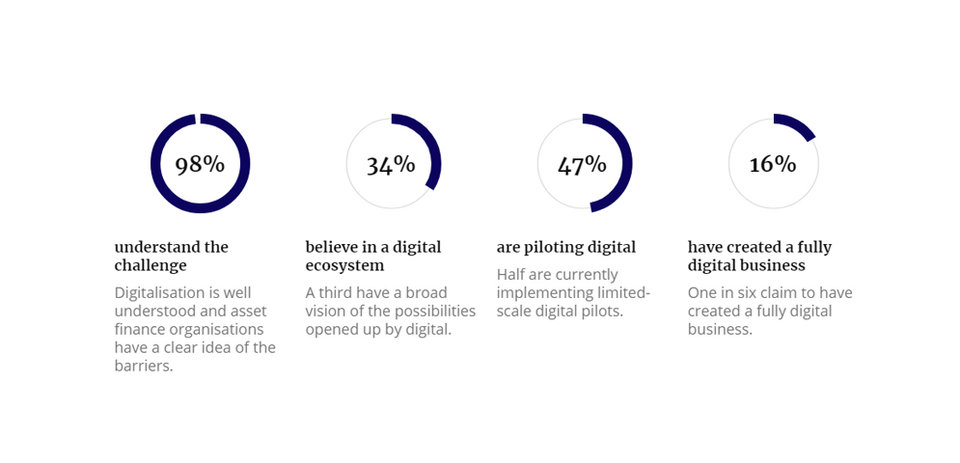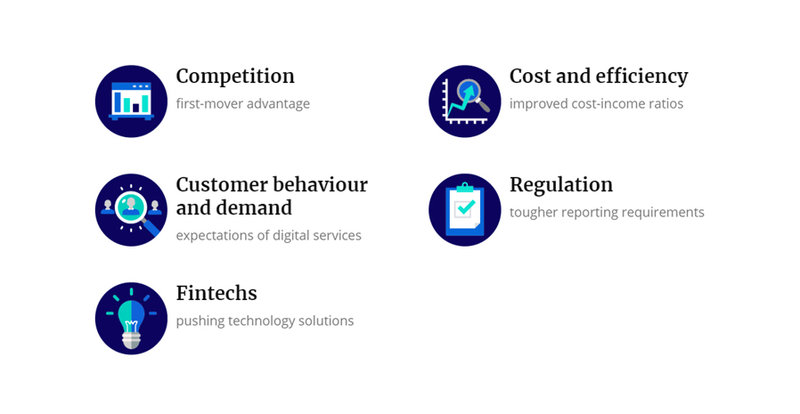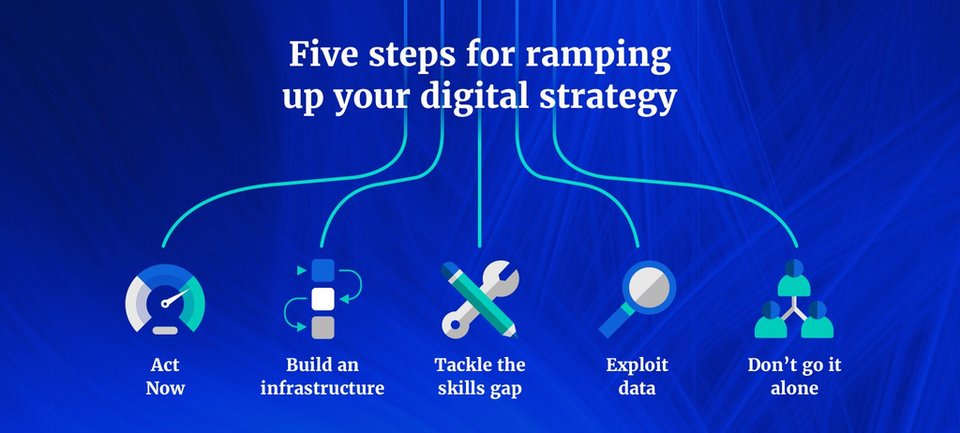
Digital Directions: Exploring digitalisation in the asset finance industry
Alfa, creator of Alfa Systems, surveyed a cross-section of asset finance industry leaders to understand how they view digitalisation, what their strategies are, and the nature of the barriers they face.
Download the report, including case studies, challenge stories, opportunities, and digital initiatives happening now – or scroll down to find more.
Scroll down or swipe up to read more
Most asset finance organisations accept that there is a need to use digital technologies to develop new and enhanced customer propositions, or risk losing market share.
Some see digitalisation as being solely about customer self-service, and some see it as linking the finance process to traditionally non-finance related systems and data; while others associate the term directly with new technologies like machine learning, virtual reality and the Internet of Things.
At Alfa we believe it is all of those things, but also that digital solutions are about more than writing an app, providing data that wasn’t previously available, or moving back-office processes online. Although enhancing customer self-service in these ways is valuable, the true benefits come from using technology to open up original ways of operating, selling, and improving; including providing a compelling experience that encourages customer loyalty.
But how successful are leasing organisations at achieving this? Our survey assesses the assertions above, asks how companies are planning to address them, and benchmarks the progress that has been made.
Market status

What’s driving digital change?
Our survey showed that there are five key factors driving digitalisation, consistently across vehicle and equipment leasing.

Evaluating digital strategies
Overall, our survey reveals that many in the leasing industry subscribe to a much broader vision of the possibilities opened up by digital.
- 34% believe digitalisation means developing a digital ecosystem
- 21% have begun the process of full transformation
- 73% want to streamline their processes
- 31% operate under agile principles
- 34% are developing omnichannel solutions
- 40% see digitalisation as customer-only
- 78% are focusing on customers
- 24% are developing mobility and pay-per-use

What are the obstacles to digitalisation?
The survey identified five key challenges to businesses in their quest for digital.
- Skills. Few report having the skills in change management required to move the company from its current approach towards a new way of working.
- Business environment and investment appetite. Some sectors of the leasing industry are experiencing significant margin erosion, particularly for vanilla finance business, and there is little appetite for investment.
- Technology. The constraints imposed by older technologies are viewed as a clear obstacle to progress.
- Innovation culture. Only a minority have fully recognised the opportunity for disruption, and even these pioneers are not necessarily starting on a fully integrated strategy to transform themselves into digital businesses.
- Partner alignment. It is vital to include partners such as vendors/dealers, manufacturers, funders, suppliers and technology providers.
Meeting the challenge
How are our respondents, and others, meeting the obligation to change?
Organisations are addressing the barriers to digitalisation in a number of ways. The leaders are innovating, and quickly; running pilot projects to test out new products and services, using rapid development techniques and embracing the concepts of ‘Build fast, fail fast’.
These digital leaders recognise they need to innovate to continue to succeed, and that they can’t do it alone. To bridge their knowledge gap, they are turning to their solutions providers for help, and forming partnerships with fintech companies to accelerate the pace of change.
Download the report, including case studies, challenge stories, opportunities, and digital initiatives happening now.
contacts
Alfa
Moor Place, 1 Fore Street Avenue, London EC2Y 9DT
Email: sales@alfasystems.com
